I read a lot of anxiety self-help books over the years. These are the 15 I come back to, recommend most, or have seen make the biggest difference for people I know and myself. If you’re overwhelmed by options, start with one that fits how you like to learn (practical tools, gentle reassurance, neuroscience, or more spiritual picks). I’ve included a “how to choose” at the bottom of this article.
Disclosure: This post contains Amazon affiliate links. That means if you click and make a purchase, I may earn a small commission at no extra cost to you. I only recommend products I truly believe in. Thank you for supporting this blog and helping me keep the content free and helpful! 🩵
1. DARE — Barry McDonagh (My #1)
If you only pick up one self-help book for anxiety, make it DARE. Barry McDonagh’s approach is clear, encouraging and incredibly practical. The book walks you through a simple four-step method to face panic attacks, intrusive thoughts, and everyday anxiety, without getting complicated. There’s also a companion app and workbook, so you’re never left guessing how to put the ideas into practice (the app has some great resources). The writer has been through severe anxiety himself and I found his story very relatable and hopeful. I also like that the book has different sections. He explains how to use DARE as a method, but also gives attention to specific anxiety related problems (feeling dizzy, racing heart, derealisation, driving while anxious etc.) and how to apply DARE. If you’ve tried other books that felt too heavy or abstract, DARE is like a supportive coach giving you tools you can use right away.
Why read it: This is the most practical, no-nonsense book for stopping panic and anxiety in the moment. It gives short, actionable steps you can use during an anxiety and panic spell and has an easy, encouraging tone that doesn’t overcomplicate things.
Who it’s for: People who want repeatable tools and actually want to get better (no such thing as a quick fix). This book is about changing your perception of anxiety and no longer letting it control you.
How to use it: Work with the book + app + workbook to turn techniques into habit. The app makes practice much easier.
2. Hope and Help for Your Nerves — Dr. Claire Weekes
Written decades ago but still a lifesaver, Claire Weekes’ Hope and Help for Your Nerves is a gentle, compassionate classic. Dr. Weekes explains what happens inside your body during panic attacks and anxiety, helping you understand that these symptoms are not dangerous, they’re just your body’s alarm system. Her signature method teaches acceptance rather than resistance: instead of fighting the sensations, you allow them to pass, which breaks the “fear of fear” cycle. This book has a reassuring, grandmotherly tone, and it’s perfect for those who feel trapped by constant worry or physical symptoms like a racing heart. I recommend it to anyone starting their recovery journey because it reduces shame and panic about panic itself. Weekes’ timeless advice is simple, soothing and rooted in experience with thousands of patients. If you want reassurance and a steady hand guiding you through anxious times, this book is a must.
Why read it: Gentle, compassionate and steady. Weekes validates panic and anxiety in a way that feels deeply humane. Her style reassures people that panic is survivable and teaches acceptance-based strategies that calm the fear of fear itself.
Who it’s for: Anyone overwhelmed by symptoms who needs kindness and patience, especially people new to recovery.
3. When Panic Attacks — David D. Burns
When Panic Attacks is a goldmine for anyone who loves step-by-step tools. David Burns draws on decades of cognitive-behavioral therapy (CBT) research to give readers more than 40 techniques to tackle worry, panic and social anxiety. What makes this book so valuable is its hands-on approach: you don’t just read theory, you fill out worksheets, try exposure exercises, and learn how to challenge distorted thinking. Burns also busts myths about anxiety, showing that you don’t need to rely solely on medication or avoid triggers forever. This book feels like a personal therapy toolkit: you can pick a method that fits your situation and start applying it right away. For people who want a structured way to overcome panic attacks, negative thoughts, or avoidance habits, When Panic Attacks is one of the most comprehensive guides out there. Keep a notebook handy; you’ll want to put its strategies into action.
Why read it: A classic, highly practical CBT handbook. It’s full of cognitive techniques and exercises that help you challenge anxious thoughts and reframe the thinking that feeds panic.
Who it’s for: Readers who want evidence-based exercises and step-by-step methods to change thinking patterns.
4. Rewire Your Anxious Brain — Catherine M. Pittman & Elizabeth M. Karle
If you’ve ever wondered why your anxiety feels so automatic, Rewire Your Anxious Brain offers clear answers. The authors explain how two parts of your brain (the amygdala and the cortex) create anxious responses, and they give you exercises for calming each pathway. Understanding this brain science helped me stop feeling powerless over panic or worry. The book balances research with relatable examples and offers practical tools like visualization, exposure, and mindfulness to quiet overactive alarm systems. What I love most is its empowering message: anxiety isn’t a life sentence; it’s a learned pattern you can retrain with the right methods. This book is perfect for readers who appreciate a mix of psychology and actionable steps. It demystifies what’s happening inside your head and body so you can focus on what truly helps you heal.
Why read it: Clear explanation of the brain mechanisms behind anxiety (amygdala vs. cortex) plus targeted exercises for each pathway. It’s empowering because it links science to practical tools.
Who it’s for: Curious readers who want the neuroscience behind anxiety and concrete practices to alter brain responses.
5. Untangle Your Anxiety — Joshua Fletcher
It’s funny because I first heard of this writer through his Instagram. His videos were very helpful, which made me interested in his books. He has written multiple books, but this one is my favorite to recommend.Written by someone who’s been through anxiety himself and is now a therapist, Untangle Your Anxiety feels like sitting down with a supportive friend who completely understands. Joshua Fletcher blends personal experience with practical advice, making the book both validating and instructive. It covers how anxiety works, why avoidance fuels it and what daily actions can help you break free. The tone is warm and conversational, so even tricky concepts feel easy to digest. Fletcher offers real-life tips (like how to handle morning dread or calm yourself after a spike) and reminds you that setbacks are part of recovery, not proof of failure. This book is ideal for people who want reassurance plus clear strategies, without heavy theory. It’s short enough to finish in a weekend, but its insights stay with you long after. If you’ve been looking for an accessible, hope-filled guide, Untangle Your Anxiety is a great place to start.
Why read it: Relatable, kind, and very readable. This book feels like a friend talking you through manageable steps. It breaks big problems into small, doable actions.
Who it’s for: People who need an empathic, practical guide with realistic daily strategies.
6. Don’t Believe Everything You Think — Joseph Nguyen
This short book is a breath of fresh air if you’re trapped in constant overthinking. Nguyen explains, in plain language, how thoughts aren’t facts: they’re passing events in the mind. That simple shift can ease anxiety almost instantly for some. I love how practical and compact it is: every chapter gives a clear insight or exercise to help you step back from spirals and calm your nervous system. There’s no heavy theory here, just clear examples that show you how much freedom comes from observing thoughts instead of buying into them. It’s perfect for anyone who wants a fast but powerful mindset reset, or for people who don’t have the bandwidth for longer reads during anxious periods.
Why read it: Short, punchy and deceptively powerful. It trains you to observe thoughts. That step alone reduces their power.
Who it’s for: Overthinkers and ruminators who need a quick mental reset and simple (but effective) exercises.
7. The Happiness Trap — Russ Harris
Based on Acceptance & Commitment Therapy (ACT), The Happiness Trap shows why chasing “perfect happiness” often fuels anxiety and how to focus instead on living by your values. Russ Harris uses relatable stories, worksheets, and metaphors (like “Passengers on the Bus”) to teach you how to unhook from anxious thoughts while still doing what matters most. I recommend this book to anyone who feels stuck waiting for fear to disappear before they live fully. Its mix of compassion and practical exercises makes it one of the best guides for building a richer, calmer life, even when anxiety tags along.
Why read it: A great and accessible introduction to Acceptance & Commitment Therapy (ACT). It reframes how you relate to uncomfortable feelings and focuses on living a values-driven life despite anxiety.
Who it’s for: People ready to shift from feeling controlled by anxiety to acting in line with what matters to them.
8. The Mountain Is You — Brianna Wiest
This is an insightful look at how self-sabotage and avoidance often mask deeper fears, including anxiety. Wiest’s writing is poetic yet clear, encouraging readers to face inner blocks instead of staying in survival mode. The book isn’t a quick-fix manual; it’s a reflection guide that helps you connect dots between fear, growth and self-compassion. I recommend The Mountain Is You for people who sense that anxiety holds them back from their potential, or who want a motivating, soulful companion for change. This book covers more then just anxiety, but is really worth the read.
Why read it: Deeply reflective on self-sabotage and transformation. This book helps you identify internal blocks that feed anxiety and provides emotional reframes to break cycles.
Who it’s for: Readers struggling with avoidance, self-sabotage, or who want a mix of insight and motivation.
9. When You’re Ready, This Is How You Heal — Brianna Wiest
If you need gentle encouragement, this collection of essays is like a soothing conversation with someone who truly understands. Wiest blends insight with practical reminders about resilience, self-trust, and letting go of past wounds. It’s not about rushing your healing. It’s about steady, compassionate steps forward. I love how you can open it anywhere and find a thought that lifts you up. It’s a perfect nightstand book for anxious days when you only have energy for a few pages.
Why read it: Gentle essays and practical prompts for healing. It’s less “how-to” and more a steadying companion when you need perspective and small, sustainable shifts.
Who it’s for: People who prefer thoughtful reflections over step-by-step manuals. It’s also great for people with a short attention span.
10. How to Do the Work — Dr. Nicole LePera
Dr. LePera combines psychology, somatic awareness and daily practices into a clear self-healing framework. The book explains how patterns from childhood can fuel anxiety, then gives exercises to break those loops and build healthier habits. It’s structured yet supportive, with journal prompts and step-by-step tools that make change manageable. How to Do the Work is ideal for readers who want to understand their triggers, reconnect with their body, and create sustainable calm.
Why read it: A modern, holistic approach to self-healing that combines psychology, habits, and somatic awareness. It’s structured and encourages daily practice to rewire patterns.
Who it’s for: Readers who want a system to follow and are motivated to do consistent inner work.
11. At Last a Life — Paul David
This heartfelt book feels like talking to someone who’s walked the same road. Paul David shares how he recovered from panic, depersonalization, and constant dread and how you can too. He emphasizes patience, acceptance, and letting time heal, instead of chasing quick fixes. Many readers find hope simply in hearing that full recovery is possible. If you’ve felt alone with your symptoms or worry you’ll “always be like this,” At Last a Life is both comforting and empowering.
Why read it: Honest, real-life recovery story with practical takeaways. It’s reassuring and actionable for anyone living with panic or depersonalization.
Who it’s for: People who need proof that recovery is possible and appreciate a lived-experience voice.
12. The Power of Now — Eckhart Tolle
A modern spiritual classic, The Power of Now teaches that much anxiety comes from being stuck in the past or fearing the future. Tolle shows how to anchor your attention in the present moment so worry loses its grip. It’s deeper and more philosophical than most titles on this list, but its calm, steady wisdom is worth the effort. I recommend reading it slowly, letting each idea sink in. For readers ready to explore mindfulness as a way to soothe anxious thoughts, this book can be transformative.
Why read it: It has a radical focus on presence. If your anxiety lives in “what ifs” about the future, this book offers powerful tools to anchor in the present moment. It’s spiritual but deeply practical once you practice it.
Who it’s for: Readers open to spiritual/mindfulness frameworks and long-term shifts in perspective.
13. The Courage to Be Disliked — Ichiro Kishimi & Fumitake Koga
Written as a dialogue between a philosopher and a young man, this book introduces Adlerian psychology in an engaging way. Its core message: you don’t need everyone’s approval to live freely, is a game-changer for social anxiety. It challenges long-held beliefs about acceptance and success, encouraging readers to choose authenticity over people-pleasing. If your anxiety centers on judgment or criticism, The Courage to Be Disliked offers a big freeing mindset shift.
Why read it: A philosophical, dialog-style book that reframes relationships, expectations and social anxiety through Adlerian ideas. It can be liberating for people stuck in approval-seeking.
Who it’s for: People whose anxiety is linked to social fears or people-pleasing tendencies.
14. The Mind-Gut Connection — Emeran Mayer
If your anxiety often shows up as stomach pain, bloating, or digestive issues, this book is essential. Mayer explains how the brain and gut constantly communicate through the vagus nerve and microbiome. He offers dietary and lifestyle tips that can calm the body’s alarm system from the inside out. What I love is how this book validates the very real “butterflies in your stomach” feeling and gives science-backed ways to support gut health for a calmer mind.
Why read it: A look at how digestive health and the microbiome influence mood and anxiety. If your anxiety shows up as gut symptoms, this book connects the dots and suggests lifestyle changes that actually matter.
Who it’s for: Readers wanting to understand and address the physiological side of anxiety, especially IBS-linked anxiety.
15. Full Catastrophe Living — Jon Kabat-Zinn
A cornerstone of mindfulness-based stress reduction (MBSR), this book teaches meditation, gentle yoga and body-scan practices to soothe anxiety and stress. Kabat-Zinn’s warm, practical style makes mindfulness accessible, even if you’ve never meditated. I suggest reading it alongside trying the exercises: the real power is in experiencing the calm that grows from daily practice. For anyone wanting a comprehensive, body-based program for easing anxiety, Full Catastrophe Living is a timeless guide.
Why read it: This classic on mindfulness-based stress reduction (MBSR) offers a full program for calming the body and mind. What makes it stand out is the emphasis on practice, you don’t just read about mindfulness, you experience it.
Who it’s for: Readers who want a structured, long-term approach to managing anxiety through mindfulness and body awareness.
Which Anxiety Book Should You Start With?
Pick the statement that fits you right now, that’s the book to dive into first.
🚨 “I need tools I can use today.”
- DARE — Barry McDonagh
- Full Catastrophe Living — Jon Kabat-Zinn
- When Panic Attacks — David D. Burns
Practical, step-by-step strategies to calm panic and anxiety fast.
🤗 “I want gentle reassurance and hope.”
- Hope and Help for Your Nerves — Claire Weekes
- At Last a Life — Paul David
Classic guides that normalize anxiety and teach recovery in supportive language.
🧠 “I love brain science and hands-on exercises.”
- Rewire Your Anxious Brain — Catherine Pittman & Elizabeth Karle
- The Happiness Trap — Russ Harris
- Don’t Believe Everything You Think — Joseph Nguyen
Clear explanations + practical tools for shifting unhelpful thinking.
🌱 “I want to explore the mind–body connection.”
- The Mind-Gut Connection — Emeran Mayer
- How to Do the Work — Dr. Nicole LePera
- Untangle Your Anxiety — Joshua Fletcher & Dean Stott
Great if you sense your body, habits and anxiety are intertwined.
🔍 “I’m ready for a deep mindset shift or personal growth.”
- The Power of Now — Eckhart Tolle
- The Mountain Is You — Brianna Wiest
- When You’re Ready, This Is How You Heal — Brianna Wiest
Transformational reads for breaking old patterns and finding your calm and confidence.
💪 “I want to strengthen self-trust and resilience.”
- The Courage to Be Disliked — Ichiro Kishimi & Fumitake Koga
- At Last a Life — Paul David (also fits here)
Build courage, independence and a calmer relationship with yourself.
Final tip
Don’t aim to “finish” a book like a checklist. Treat each book as a toolbox: pick one practice, try it for two weeks, and see what changes. For me, DARE taught the best immediate habits; the other books each supplied different layers (mindset, science, somatic practice, self love etc.) that together helped me feel less controlled by anxiety. I hope these books can help you along in your journey. Let me know if you’ve read any of these or if you have any other books you’d suggest!
Disclaimer: I’m not a mental health professional, everything here is shared from research and personal experience. If you’re feeling overwhelmed or need support, please consider talking to a qualified professional. You’re not alone. If you’re in the U.S., you can call or text 988 anytime. For help in other countries, visit https://findahelpline.com.
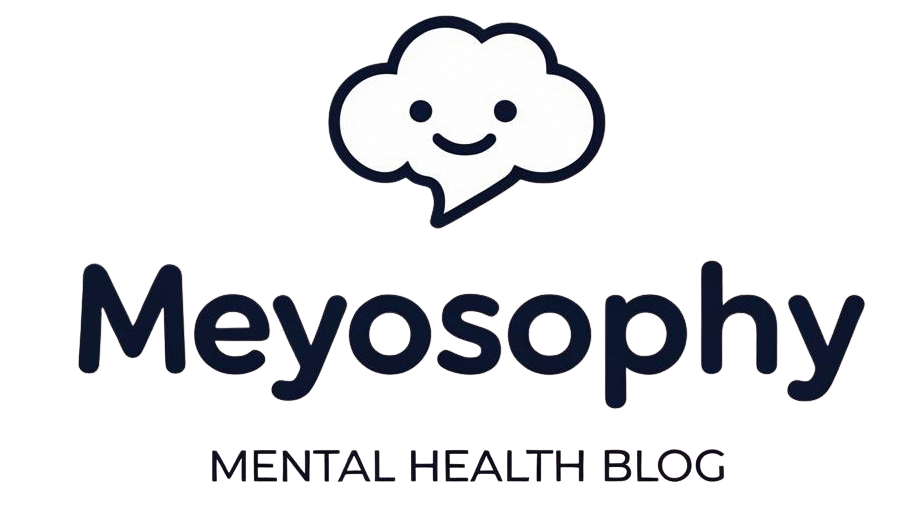
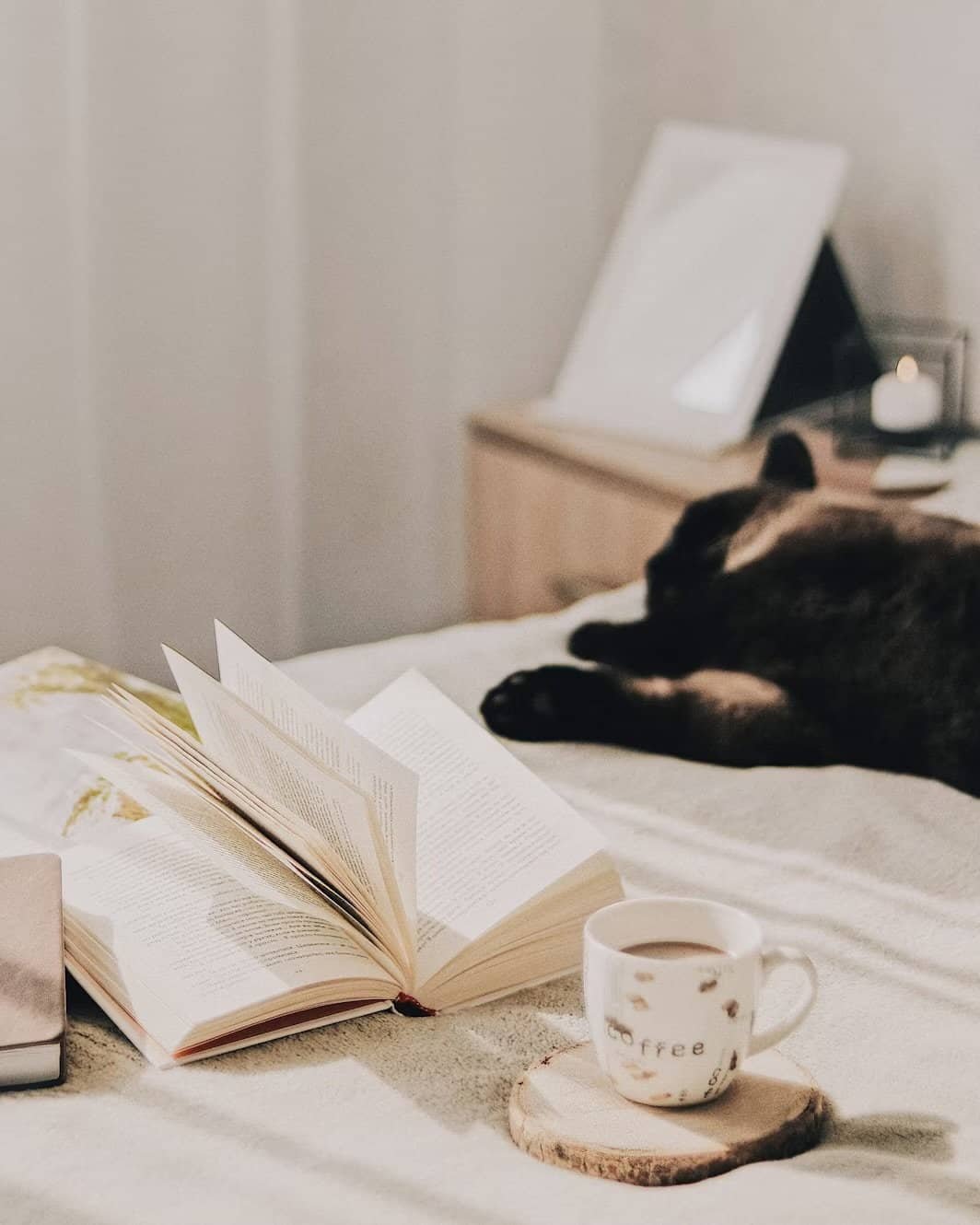
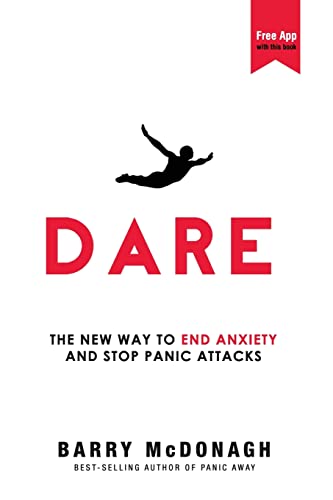
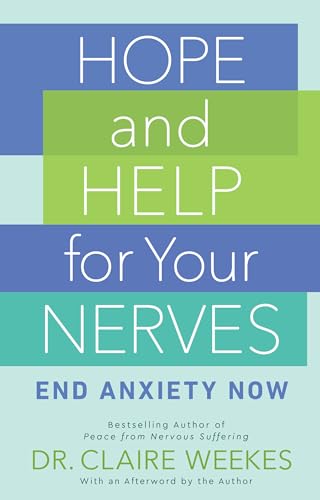


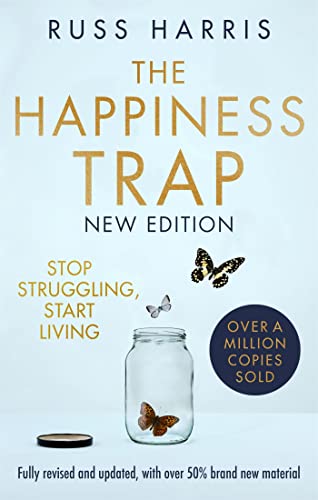
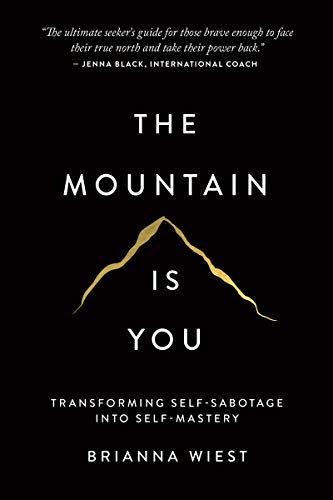


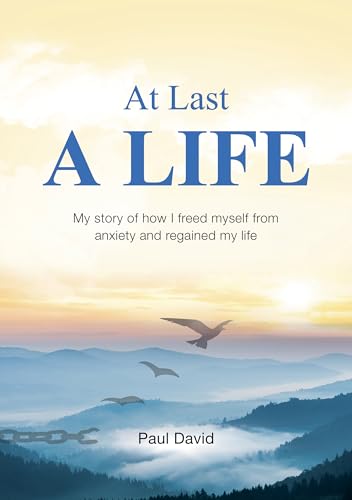
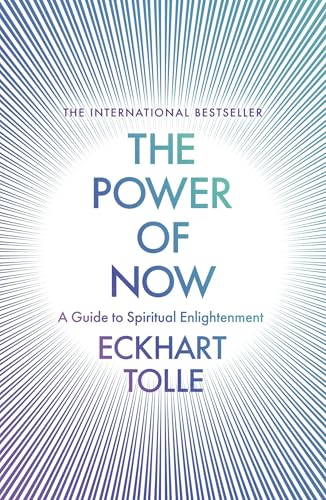


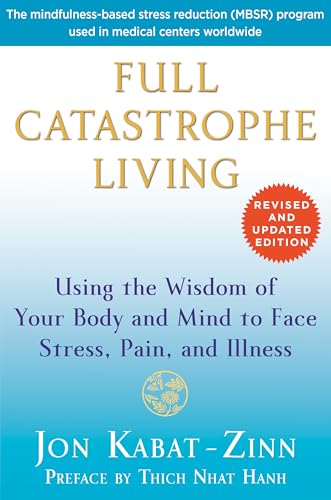
I like the end section “Which Anxiety Book Should You Start With?
Pick the statement that fits you right now, that’s the book to dive into first.”
Very informative post. Thank you for sharing.
Glad you’ve found it helpful!
These are all great! Love this! I love to read when I have time. lol I have several new books that I purchased, and I am still only working on one. 😉
Haha that’s a common struggle 😉
As someone who has anxiety (and has had it for at least 45 years), I found this post very helpful! In some situations, a self-help book is just as beneficial to me as chatting with my therapist. Thank you for sharing!
Totally agree. Books can be so insightful or comforting at times 🩵
Love love love a good self-help book! I struggle with anxiety too! Thanks for sharing this
Sorry to hear you struggle too. Glad you’ve found this list helpful. You’ve got this💪